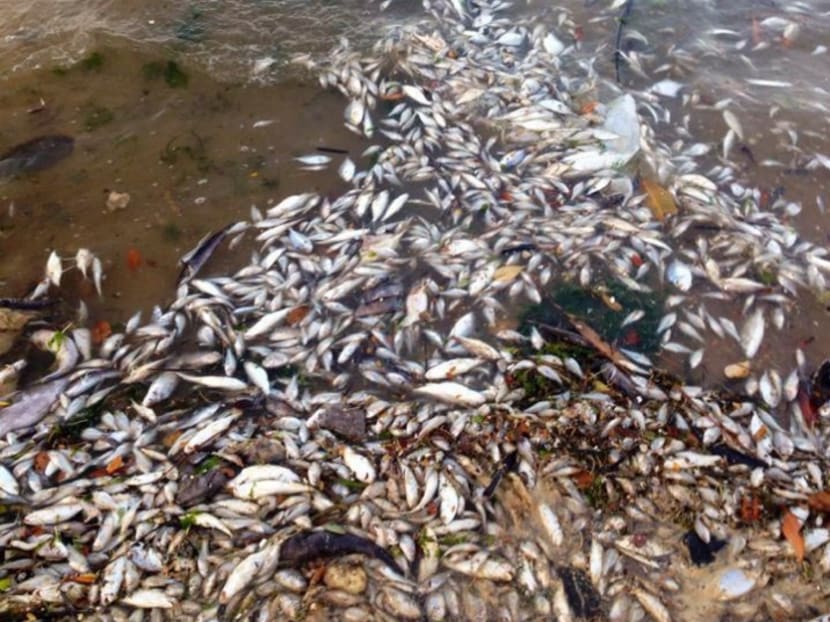Mass fish deaths: Premature to decide if fish farmers need to relocate, says Maliki
SINGAPORE — With the authorities still studying the causes behind the plankton blooms that have led to the recent fish deaths, Minister of State (National Development) Maliki Osman said today (April 13) it is premature to determine if there is a need for fish farmers to relocate or if plankton blooms will hinder production targets.
SINGAPORE — With the authorities still studying the causes behind the plankton blooms that have led to the recent fish deaths, Minister of State (National Development) Maliki Osman said today (April 13) it is premature to determine if there is a need for fish farmers to relocate or if plankton blooms will hinder production targets.
Responding to a question tabled by Non-Constituency Member of Parliament Yee Jenn Jong today, Dr Maliki said the Agri-Food and Veterinary Authority of Singapore (AVA) is studying the causes of plankton blooms in the Johor Straits more comprehensively, to see if they are “simply ad-hoc events or regular occurrences”.
He told Parliament: “It is premature to determine whether there is a need for fish farmers to relocate away from the Johor Straits, and whether plankton blooms will significantly hinder us from reaching our 15 per cent local fish production target.”
Last month, up to 600 tonnes of fish from 55 farms here were lost because of an algal bloom. Last year, a plankton bloom cost 53 farms about 500 tonnes of fish.
Dr Maliki said the AVA monitors a few indictors of water quality, such as plankton count and dissolved oxygen at the coastal fish farm areas, which allow the authority to give farmers early warning when adverse conditions are detected.
The AVA was able to alert the famers of the impending plankton bloom “well ahead of time”, and those who heeded its advice averted the worst of the fish kills.
In his supplementary question, Mr Yee asked if there are studies to see if reclamation works affect the environment and if Singapore is confident of hitting the 15 per cent local fish production target.
Dr Maliki replied that it is “really not clear” whether ongoing reclamation works in Malaysia have an impact on fish deaths. He added that the AVA is also working with the Tropical Marine Science Institute at the National University of Singapore to conduct studies on plankton bloom and develop solutions to mitigate the problem.
He said the AVA had awarded a tender to five companies to develop sustainable sea-base farming system that will minimise farms’ exposure to environmental challenges such as plankton bloom.
On meeting the 15 per cent target, the authority is also encouraging fish farmers to modernise and explore various options, such as the close-containment system and the possibility of high-rise technologies in fish farming.
“We have been going to various countries to study various options available ... So, we are working very hard to meet these targets,” Dr Maliki added.







